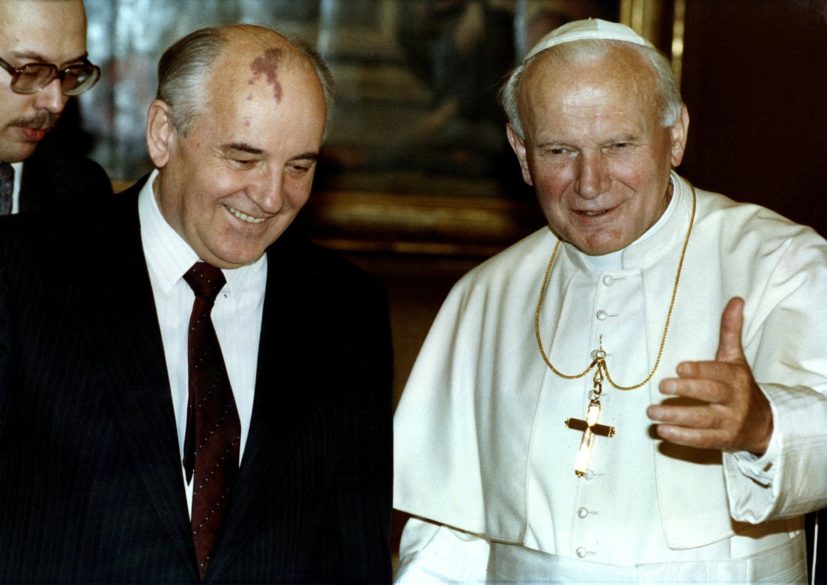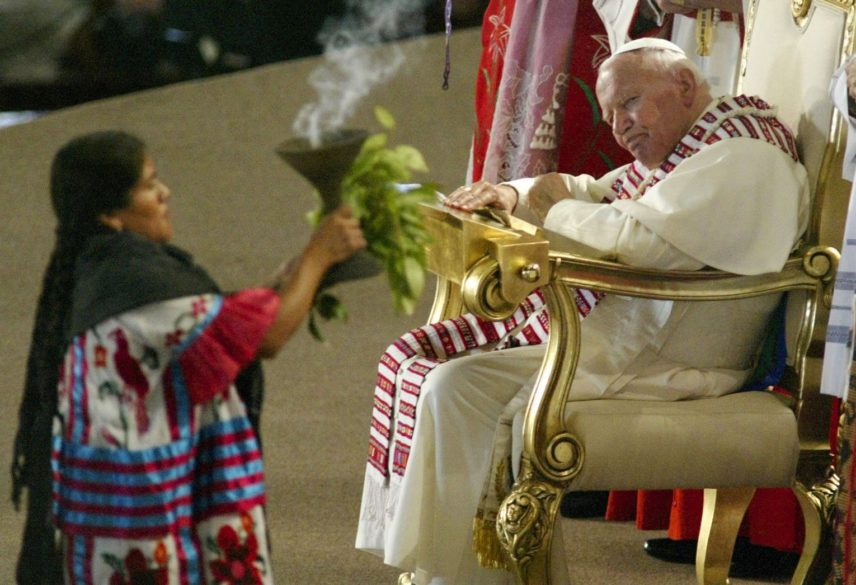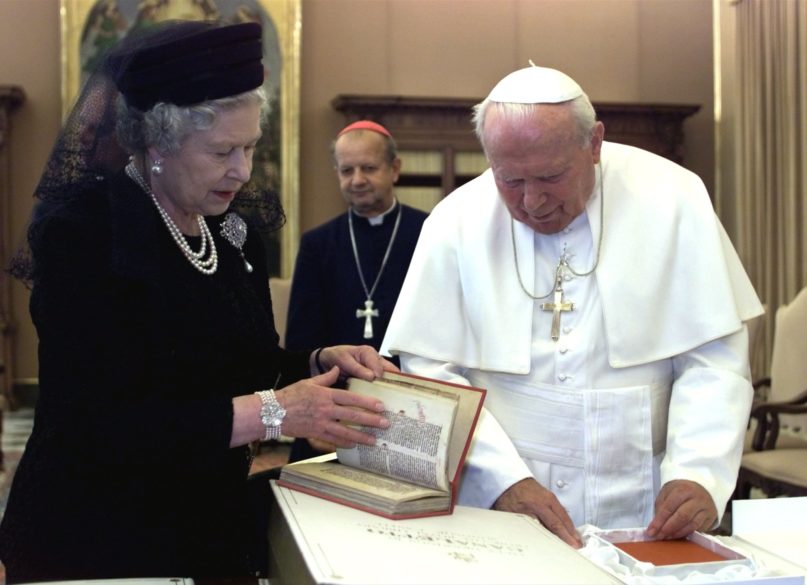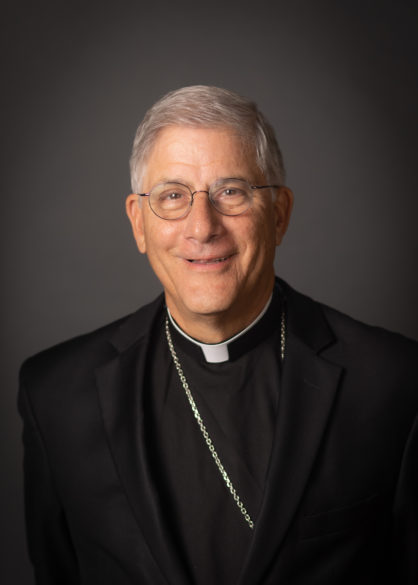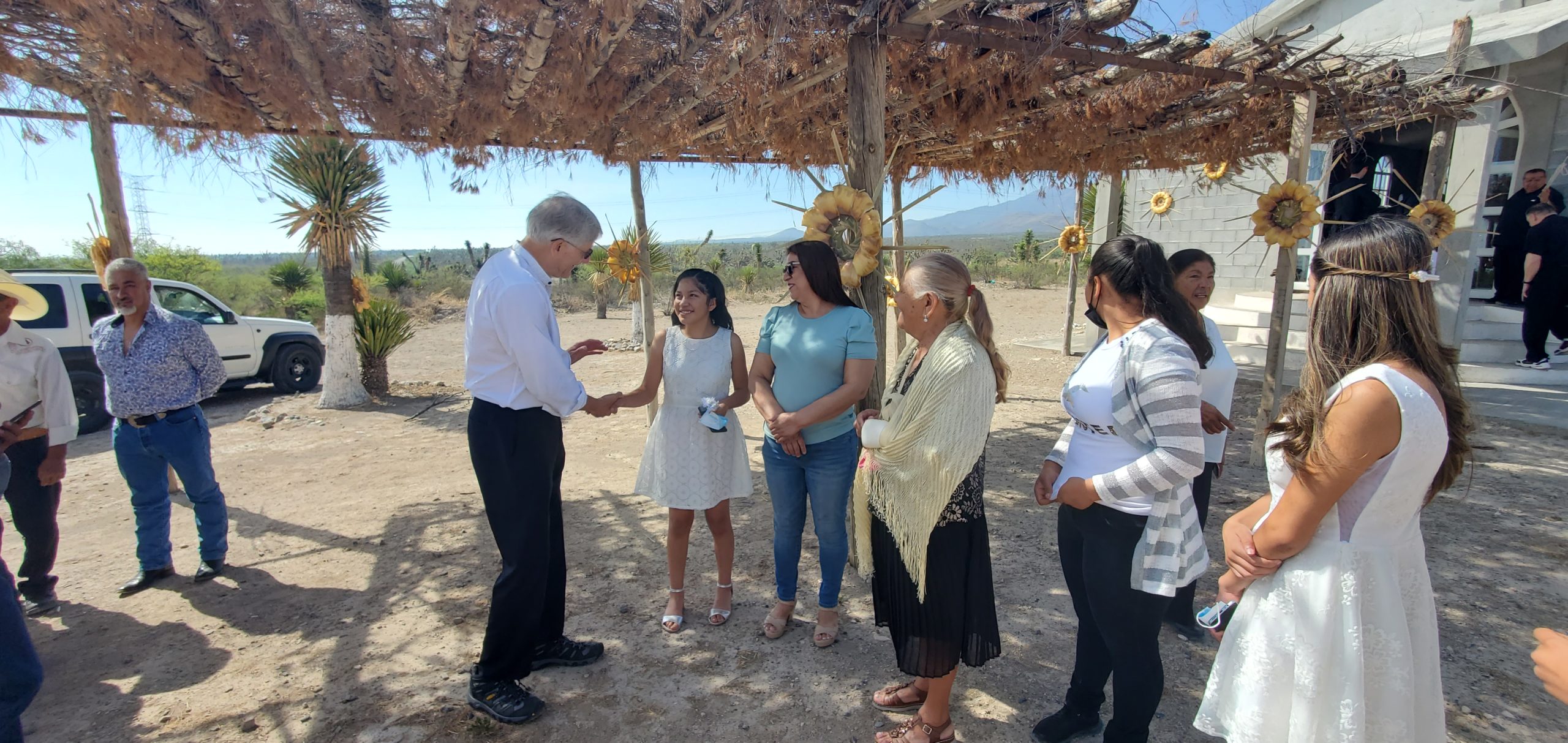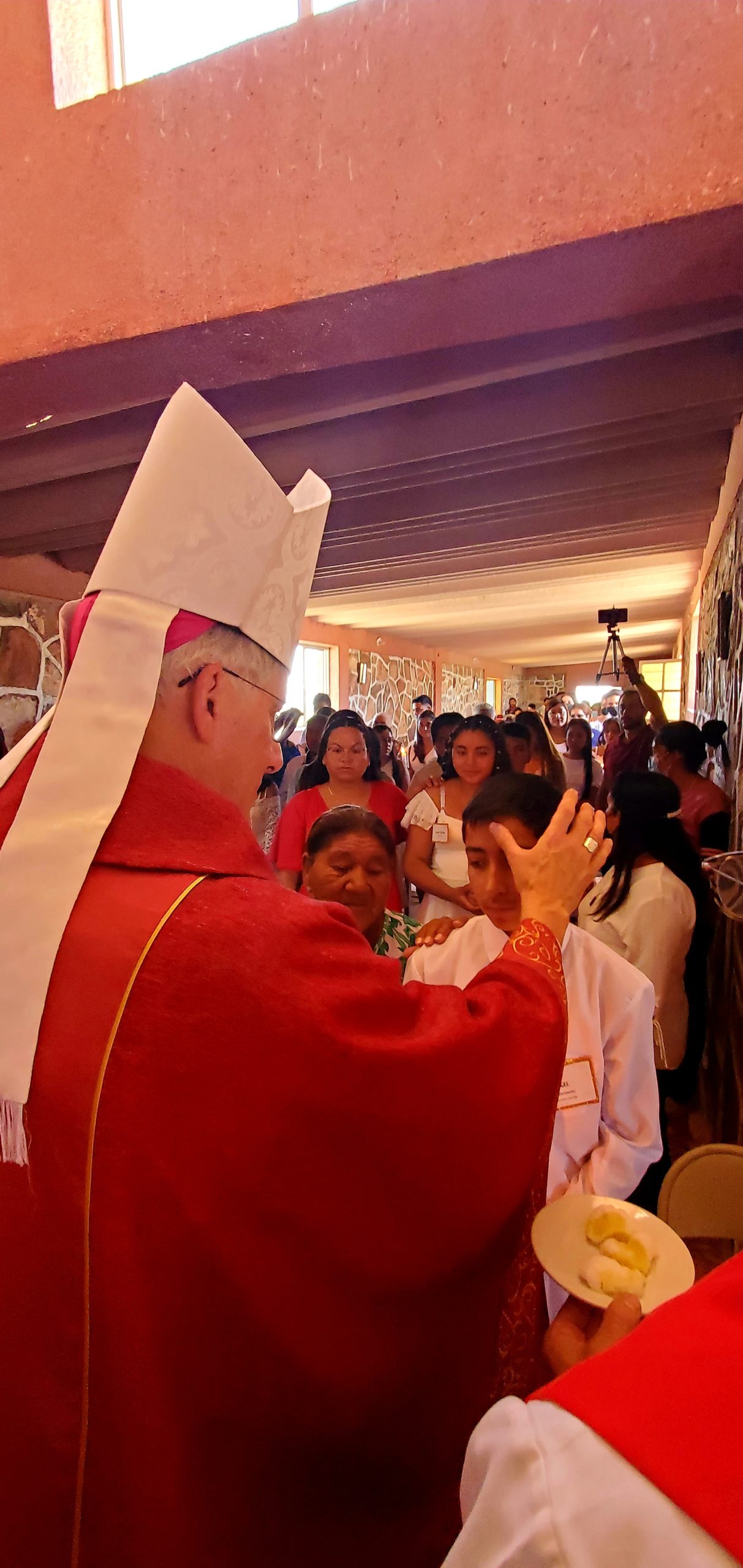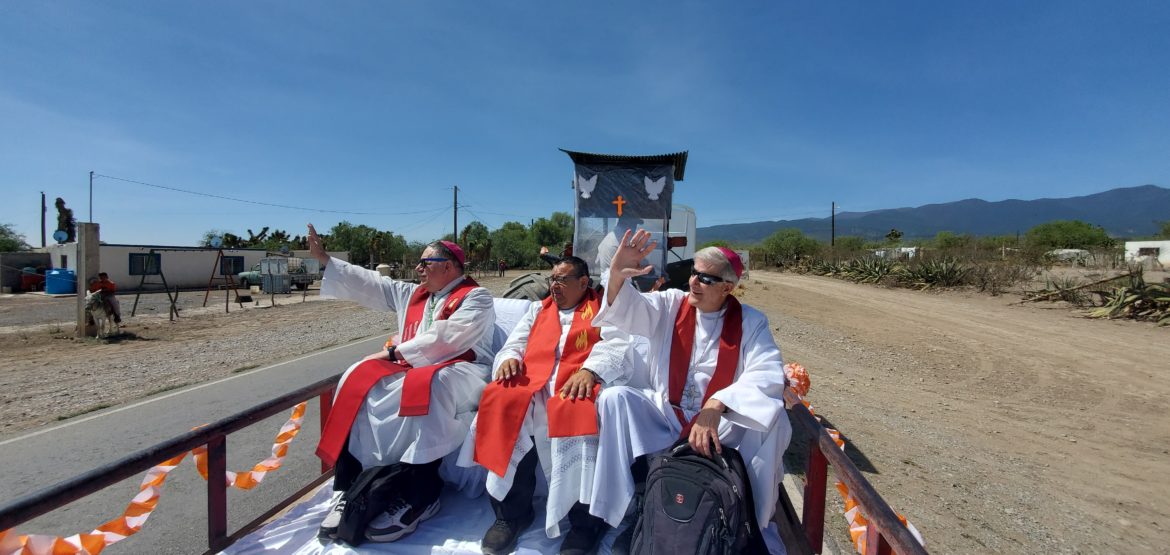By Bishop Joseph R. Kopacz, D.D.
As Christians, we do have the inside track on the road to eternal life. The Lord Jesus’ resurrection from the dead, and his appearances to the disciples, although not a matter of historical evidence and scientific proof, are breath taking in the scriptures. The wounds, the baked fish and bread, the burning Word, the breaking of the bread, the personal encounters, the forgiveness, the peace, the joy, the gift of the Holy Spirit and the birth of the church.
It may not be the work of the laboratory, but it is the labor of love through faith in the risen One in a bond that can never be broken, and in an eternal promise that is sealed in the Blood of the Lamb. With St. Paul we press on to the finish line (Phil 3:14) because our citizenship is in heaven. (Phil 3:20) For our eyes are fixed not on what is seen but rather on that which cannot be seen. What is visible is transitory; what is invisible is eternal. (2 Cor 5:18)

However, our belief in the resurrection of the body and life everlasting does not place us on the sidelines of this life. Rather, the Holy Spirit who raised Jesus from the dead places us squarely in the thick of this world’s joys and sorrows, tragedies and triumphs, as we await the blessed coming of our Lord Jesus Christ. Indeed, all creation groans and is in labor pains until now…(Romans 8:22), and the Christian groans and grieves with the rest of humanity, but with hope because Jesus is risen. As Jesus said to the woman at the well, the life of God within us is like a spring of water within welling up to eternal life. (John 4:14)
Eternal life has begun and this is the source of our hope in our commitment to respect life across all stages of the human lifespan. With all of the attention of the baseball world on Aaron Judge, a New York Yankee, as he surpasses 60 home runs, the memory surfaced for me of another superstar who packed Yankee stadium back in 1979.
St. John Paul II did not disappoint. Only two years into his apostolic ministry he launched moon shots during his presiding at Mass and preaching that carried far beyond the stadium’s confines into the hearts and minds of Catholics and people of good will around our nation and our world. From the perspective of history, we know that he was a warrior on behalf of life, unborn and throughout the lifespan, and one of his landmark encyclical letters that revealed the depth of his passion, was published around the time of his second apostolic visit to our nation in 1995. In it he warned about a culture of death that was plaguing America.
Back in 1979 with a full stadium as the launching pad, the Holy Father’s words arose from the proclamation of St. Luke’s parable of the rich man and Lazarus. St. John Paul framed his social teaching to follow in the power of evangelization.
“When we Christians make Jesus Christ the center of our feelings and thoughts, we do not turn away from people and their needs. On the contrary, we are caught up in the eternal movement of God’s love that comes to meet us; we are caught up in the movement of the Son, who came among us, who became one of us; we are caught up in the movement of the Holy Spirit, who visits the poor, calms fevered hearts, binds up wounded hearts, warms cold hearts and gives us the fullness of his gifts.”
From this fountain of God’s eternal movement, John Paul II continued: “Catholics of the United States are to walk hand in hand with your fellow citizens of every creed and confession. Unity among you in all such endeavors is essential, under the leadership of your Bishops, for deepening, proclaiming and effectively promoting the truth about human life, the dignity and inalienable rights, the truth such as the church receives it in Revelation and such as she ceaselessly develops it in her social teaching in the light of the Gospel…The parable of the rich man and Lazarus must always be present in our memory; it must form our conscience. Christ demands openness to our brothers and sisters in need — openness from the rich, the affluent, the economically advanced; openness to the poor, the underdeveloped and the disadvantaged.
“All of humanity must think of the parable of the rich man and the beggar. We cannot stand idly by. Nor can we remain indifferent when the rights of the human spirit are trampled upon, when violence is done to the human conscience in matters of truth, religion and cultural creativity.
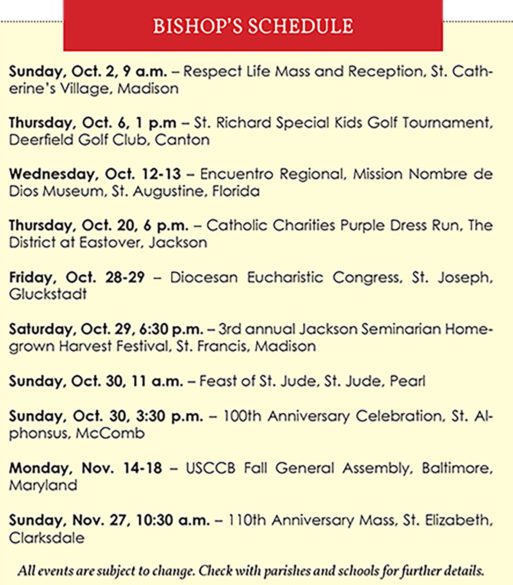
“We cannot stand idly by, enjoying our own riches and freedom, if, in any place, the Lazarus of the twentieth century stands at our doors. In the light of the parable of Christ, riches and freedom mean a special responsibility. And so, in the name of the solidarity that binds us all together in a common humanity, I again proclaim the dignity of every human person: the rich man and Lazarus are both human beings, both of them equally created in the image and likeness of God, both of them equally redeemed by Christ, at a great price, the price of “the precious blood of Christ.” (1 Pt 1:19)
I close with the following reflection which was a beacon for St. John Paul across his long and fruitful apostolic ministry. He was the missionary disciple without parallel.
“In the cultural wars of the recent past the church has defended the fundamental values of our civilization. We must be proud of those pastors and intellectuals who led those struggles. We must, however, ask ourselves. Is it possible to defend Christian and natural values in the public arena if their root — faith in the living presence of Jesus Christ — has dried up? If the root is rotten the tree will fall; we must first of all seek to strengthen the root. We must become missionary disciples: before preaching the law we must enter the hearts of the people. Only then will we be able to speak with authority, and only then will our people feel that the law is not an external imposition, but the answer to the most profound desire of their heart.” Rocco Buttiglione, Discovering Pope Francis The Splendor of Truth, The Gospel of Life, The Joy of the Gospel!
From one generation to the next you are our hope, O, Lord.


